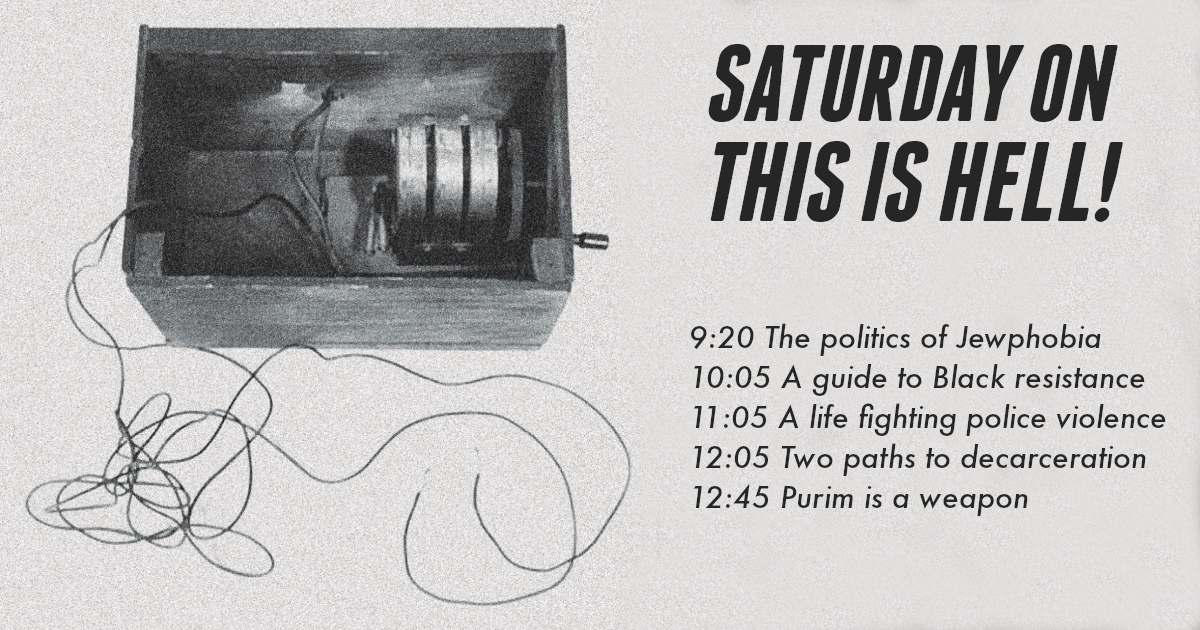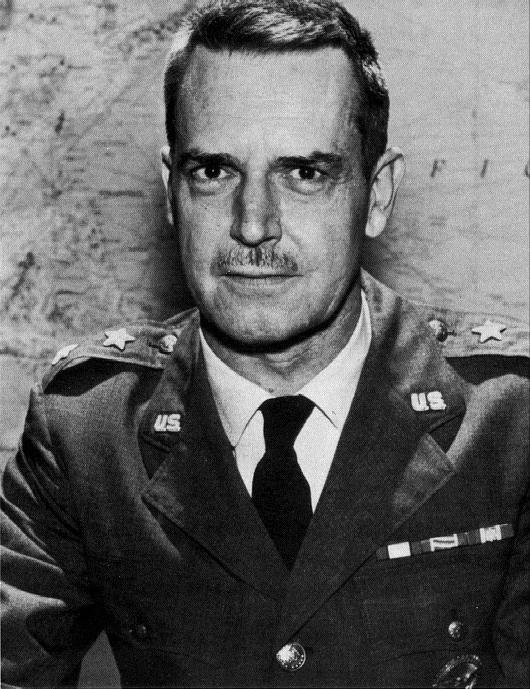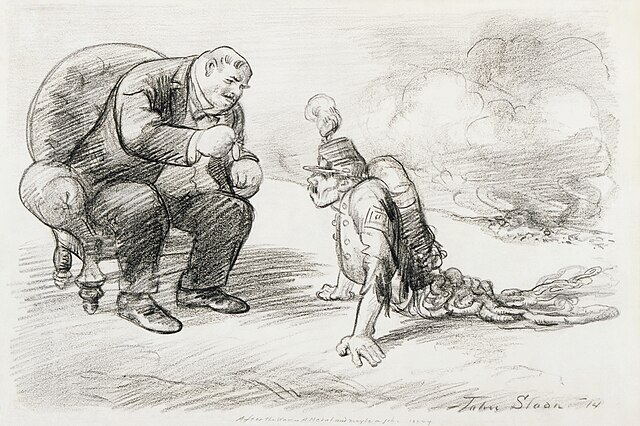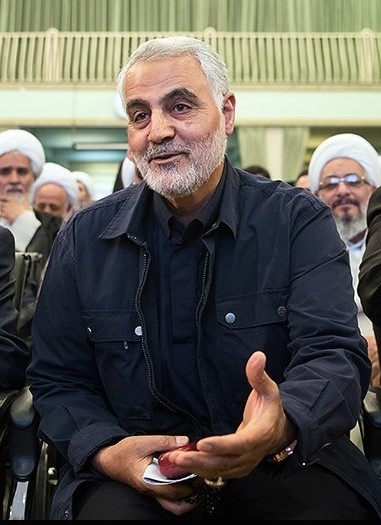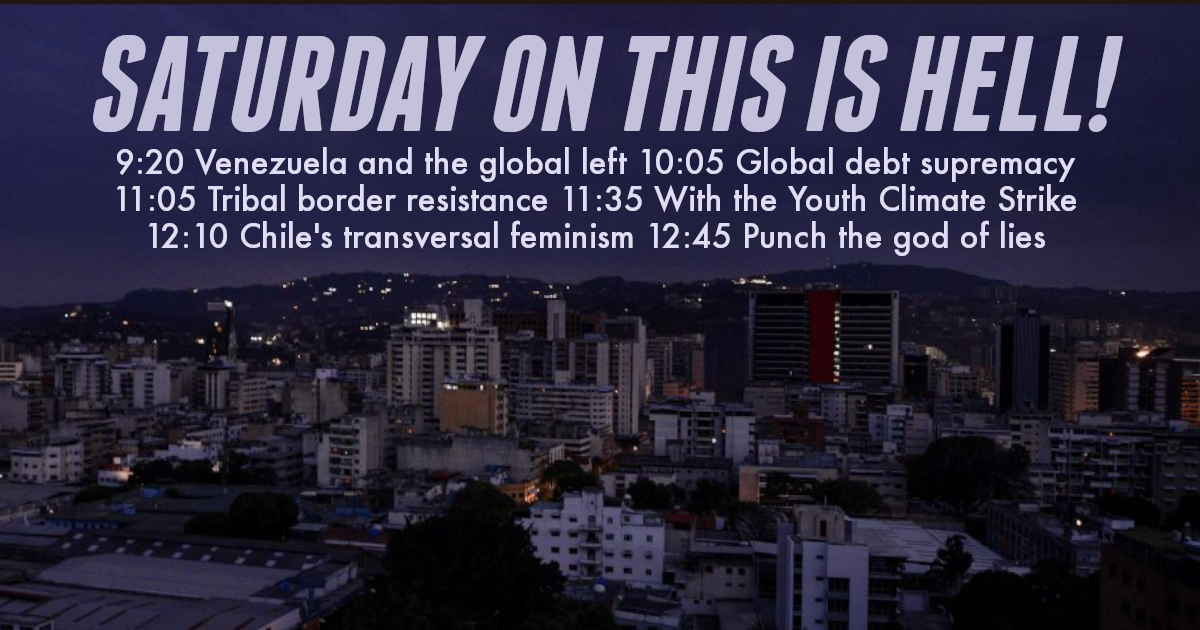Listen live from 9AM - 1:00PM Central on WNUR 89.3FM / stream at www.thisishell.com / subscribe to the podcast
9:20 - Writer Barnaby Raine examines the history and present of anti-Semitism, and anti-anti-Semitism.
Barnaby wrote the essay Jewphobia for Salvage and the op-ed Ilhan Omar should be more radical about Israel, not less for The Guardian.
10:05 - Akiba Solomon and Kenrya Rankin explore the revolutionary possibilities of Black resistance.
Kenrya and Akiba wrote the book How We Fight White Supremacy: A Field Guide to Black Resistance from Bold Type.
11:05 - Attorney Flint Taylor reviews half a century's work fighting (and beating) police violence in Chicago.
Flint is author of The Torture Machine: Racism and Police Violence in Chicago from Haymarket Books.
12:05 - Colleen Hackett and Ben Turk examine the space between radical and elitist strategies of decarceration.
Ben and Colleen wrote the chapter "Shifting Carceral Landscapes: Decarceration and the Reconfiguration of White Supremacy" in the book Abolishing Carceral Society from Common Notions
12:45 - In a Moment of Truth, Jeff Dorchen weaponizes Purim.
Welcome to the Moment of Truth: the thirst that is the drink.
I foresee a return to an in-person cash economy, and furthermore, a return to in-person communities. Why's dat? Here, I'll explain a little my utopian notion.
We have a president who is a fraudulent man. That is, even the facade that he's a man is a fraud. He literally cannot utter two sentences without lying, and even when what he's saying is trivial he manages to make you feel you're being lied to. "It's a beautiful day. Really, it's just one of those beautiful sunny days." I don't believe you, and I'm right here in the day with you. Forget this, I'm going inside. It must be raining guano or something.
This is more than a constitutional crisis, or a crisis of faith in the press and government. This is the rubber chickens come home to roost. This is a crisis of reality. We can't have this much reality be in question, it's too much. I'd rather just have the old worries, like under Reagan, that we were gonna die in a nuclear holocaust. That's existential. This crap is existentialIST.
Felicity Huffman, so woke playing that trans person, so woke that she bought her kid's way into college. Wait, that's what rich people do. But not always fraudulently. Not always by committing illegal lying. But it’s not always necessary to lie illegally. Because behind the lie of merit-based anything is the embarrassing obscenity that money trumps merit. Money trumps truth. That Fyre Festival, its roots go all the way back to Barnum, it’s entertaining that people with too much disposable income and gullibility and lousy taste in music got taken in such a public way. They were promised entertainment and, lo and behold, they became entertainment. Turns out that, even if the product is a $250,000 festival ticket, the product is you.
We now have a two-decades' legacy of facade masquerading as substance. It's been over twenty years since people made millions on companies that were made of nothing. The tech bubble burst back then, but it's never really gone away. Vaporware is normal now, vapor-everything, and we haven't learned our lessons at all. Not from the tech bubble, not from the housing bubble. It's all a fraud bubble, but we won't admit it. Trillions and trillions of dollars of wealth is just aether. It's nothing. There is no there there, no there anywhere. I ask you, oh wise people, where is there any there?
It's the economy of lies, but economy has... read more
Listen live from 9AM - 1:00PM Central on WNUR 89.3FM / stream at www.thisishell.com / subscribe to the podcast
9:20 - Live from Caracas, political analyst Lucas Koerner reports on the global left's blindspot in the dirty war for Venezuela.
Lucas wrote the article The Global Left and the Danger of a Dirty War in Venezuela for MintPressNews / Venezuelanalysis.
10:05 - Political economist Jerome Roos explains how sovereign debt swallowed global politics.
Jerome is author of Why Not Default? The Political Economy of Sovereign Debt from Princeton University Press.
11:05 - Journalist Candice Bernd reports on indigenous and environmental resistance to the border wall in South Texas.
Candice is author of the article A Tribal Camp in South Texas Is Vowing to Resist Trump’s Wall for Truthout.
11:35 - Student activists Anya Sastry and Isabella Johnson report on Friday's Youth Climate Strike, and the fight ahead.
Anya and Isabella are state leads of Climate Strike Illinios and marched in today's Youth Climate Strike.
12:10 - Live from Santiago, organizer Bree Busk explores the possibilities of Chile's transversal feminist wave.
Bree wrote the articles Chile’s feminist movement is here to stay and Chile’s feminists inspire a new era of social struggle for ROAR Magazine.
12:45 - In a Moment of Truth, Jeff Dorchen punches the face of the god of Lies.
Welcome to the Moment of Truth: the thirst that is the drink.
Three identical triplets. Have you met them? For a long time they hadn't even met each other. They were separated at birth. Then, twenty years later, they were reunited. It was joyous. There were astounding parallels in their separate upbringings. There were stunning and amusing similarities between them. And then things took a dark turn.
Look, it's on Hulu. I'll try not to spoil anything, but I will probably fail. I'll jump in and fail right now: their separation at birth was arranged by a theorist of hereditary psychology who had himself survived the Holocaust. Survived as in, he was Jewish and didn't get killed.
But this isn't about Jews. It's about ideas. The ideas the Nazi doctors explored about heredity and human nature and biology were medieval. Their methods of investigation involved torturing their subjects in ways that would make a Spanish Inquisitor cringe, and gag with nausea. They transplanted eye tissue, that's one, without anesthetizing the living donors. I won't go further because, for reasons of financial ineptitude, I had to sell my book about the Nazi doctors. I'll buy it again when I'm rich.
Now, this Jewish researcher, he arranged to have several sets of twins separated at birth and placed with families who differed in class and demeanor. Their development in these differing environments was followed under the guise of routine follow-up monitoring in the adoption process.
The underlings of this Holocaust-survivor mastermind were grad students or post-docs, going to the subjects' houses, filming them as they put them through your usual childhood inventory of skills and behavior. I say usual, because I underwent therapy as a child, and the tests were very familiar to me. These underling researchers were keeping a secret, because they knew that each solitary individual they were testing was actually an unwitting member of a matching set. They kept it secret from the adopted children and the adoptive parents.
One woman, who looked disturbingly like a more cube-shaped Madeline Albright, and who would only admit to having aided and abetted this study in the most minimal way, evaluated the ethical questions it might raise thus: see, this was the 50s and 60s, we didn't know this was bad.
Thin-lipped octogenarians, note: bright red lipstick is a horrible choice. Oh, wait, that's bad. That's a bad thing to say, bagging on cubic Madeline... read more
In 1946 – (73 years ago) – thirty-three people were crushed to death and hundreds more were injured when crowds got out of control at Burnden Park stadium in Lancashire, England, during a soccer match between the Bolton Wanderers and the Stoke City football club. The game was part of an elimination tournament for the FA Cup, which was being revived after a six-year hiatus due to the Second World War. The stadium and the field, still in bad shape from wartime neglect, were overrun by some eighty-five thousand fun-starved fans. Twenty minutes before kickoff, the authorities were forced to close the entrances. At that point, fans began climbing in over the fences without paying. The crowd got so chaotic that some spectators were literally pushed out the other end of the stadium. After the game finally began, two metal barriers collapsed on top of some spectators, crushing them underneath. Referees halted the game while bodies were pulled out of the wreckage. The dead spectators were laid out next to the field and covered in their own jackets — and the game was started up again. It ended in a scoreless tie.
In 1967 – (52 years ago) — a TWA jetliner carrying twenty-five passengers from Pittsburgh to Dayton, Ohio, was making its landing approach toward the Dayton airport when it plowed into a small, private Beechcraft airplane operating in uncontrolled airspace. The Beechcraft was pulverized, as were critical parts of the jetliner, which went into an uncontrolled dive and a crash and burn. All people aboard both planes were killed. Investigators later concluded that the airliner had descended from cruising altitude too fast for its pilots to see the small plane drifting into its flight path.
In 1976 – (43 years ago) — at the ski resort of Cavalese in the northern Italian Alps, a cable car carrying forty-four Italian, German, and Dutch tourists was making its way down from the top of a mountain when the steel cable snapped. The cable car fell some seven hundred feet, hitting the mountainside, and it was immediately crushed by the three-ton overhead carriage assembly that landed on top of it. One passenger, a fourteen-year-old girl, somehow survived. The other forty-three people, including fifteen children, were all killed. Though inspectors had recently found the cable... read more
Listen live from 9AM - 1:00PM Central on WNUR 89.3FM / stream at www.thisishell.com / subscribe to the podcast
9:20 - Writer adrienne maree brown explores the radical, liberatory potential of pleasure.
adrienne is author of the book Pleasure Activism: The Politics of Feeling Good from AK Press.
10:05 - Writer Sujani K. Reddy examines deschooling, as a radical lesson in abolitionist politics.
Sujani wrote the chapter We Don’t Need No Education: Deschooling as an Abolitionist Practice in the book Abolishing Carceral Society from Common Notions
10:35 - Live from Caracas, Lucas Koerner reports on the global left's blindspot in the dirty war for Venezuela.
Lucas wrote the article The Global Left and the Danger of a Dirty War in Venezuela for MintPress / Venezuealanalysis.
11:05 - Historian Greg Grandin traces America's imperial journey from frontier to border wall.
Greg wrote the book The End of the Myth: From the Frontier to the Border Wall in the Mind of America from Metropolitan Books.
12:05 - Jacobin writer Meagan Day explains what a US socialists would do with political power.
Meagan wrote the articles Democratic socialism, explained by a democratic socialist for Vox and Wielding the Imperial Presidency for Jacobin.
12:45 - In a Moment of Truth, Jeff Dorchen breaks the Overton window.
Welcome to the Moment of Truth, the thirst that is the drink.
Michael Cohen, oh, that Michael Cohen. I enjoyed the show this past Wednesday, the aggressively-contrite-Michael Cohen-testifies-to-Congress show. All the Republicans could do was say, "Look what a crook and liar this guy is, he already lied to us once, we're gonna believe him now?" And his response was, "Look how much of crook and liar I was, can you imagine what a monster someone would have to be to make me want to tell the truth?" Or something. I don't know, if I were Michael Cohen, with no scruples about lying or threatening or extorting or strong-arming, and Donald Dump, the cartoon duck with no pants, started using those same tactics on me? I'd be tearing him a new one in front of Congress out of pure spite. Why not? There are so many indictments surrounding this administration, whether the deep state, the shallow state, or the moderately profound state is against him, or he has terrible taste in friends and associates, or he specifically picks rotten people on purpose because he needs them to do rotten things for him.
I don't know why the Republicans are so down on Michael Cohen for having previously lied to Congress. Elliott Abrams was convicted of lying to Congress, and he was just appointed special envoy, so clearly the GOP have no problem with the principle of lying to Congress, even if proven in a court of law, they just don't like when your truth conflicts with the lies they like. Some lies they like, some they don't. And the truth they really don't like. They can't handle the truth. Did you hear some of those crackers? "I've never seen such a travesty!" It was the Lindsay Graham and Brett Kavanaugh crybaby festival all over again.
The president is a conman, a cheat, and a racist. For every crime there is a snitch, whether the snitch snitches or he don't. Whether the snitch snitches for money or a shorter sentence or to satisfy a grievance, for the good of humanity, or for the sake of his own soul. The Unibomber's brother snitched on him. But generally, snitches on public figures, Presidents, Senators, mob bosses and such, those bitches get stitches before they can snitch. The Dump administration is awash in snitches, though. You could never stitch them all up in time to save nine. Or at least let's hope not.
A striking contrast to Cohen's snitch behavior is the story of father and son, Mark and John Harris. Heard of them? A little, you... read more
